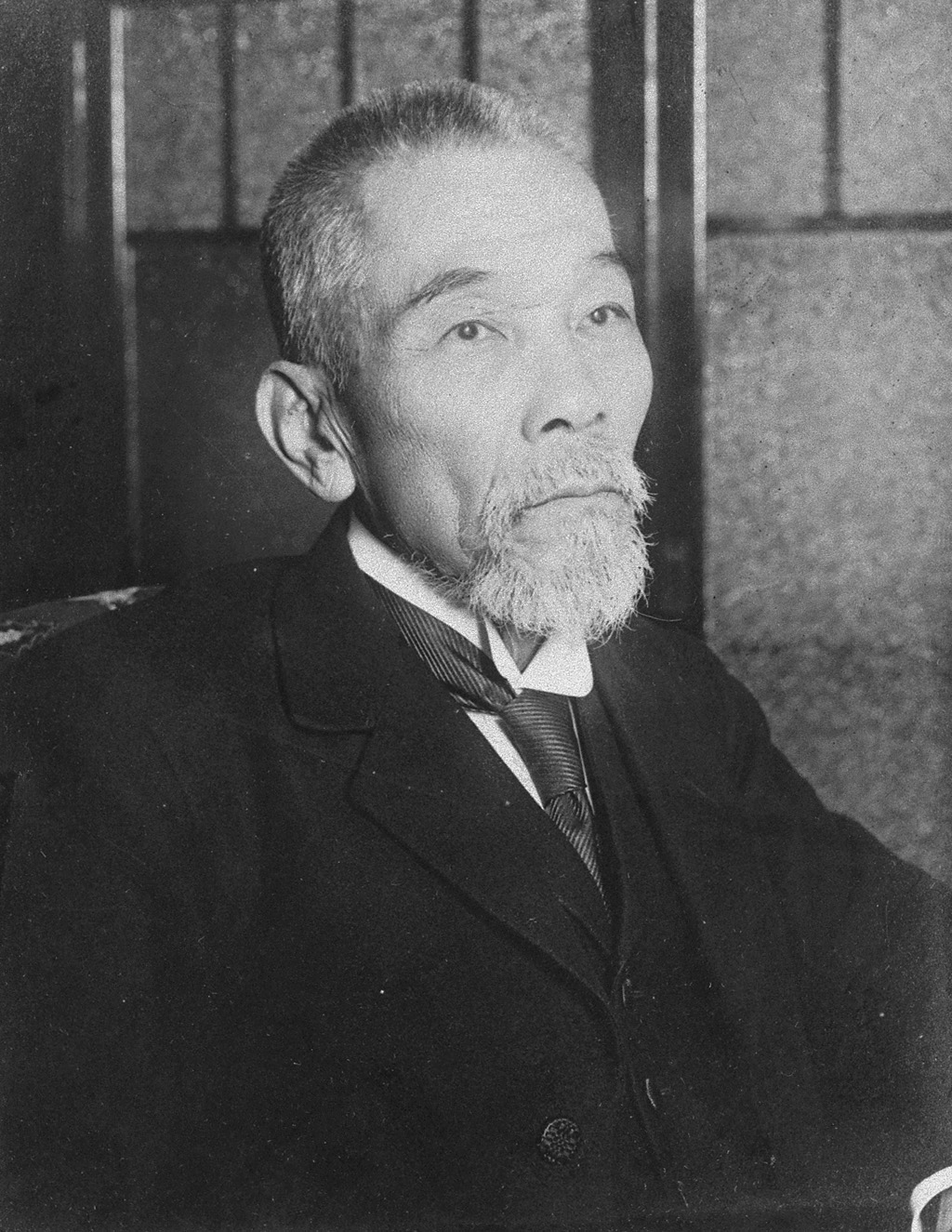Rikken Kokumintō on:
[Wikipedia]
[Google]
[Amazon]
 The Rikken Kokumintō () was a minor
The Rikken Kokumintō () was a minor
 The Rikken Kokumintō () was a minor
The Rikken Kokumintō () was a minor political party
A political party is an organization that coordinates candidates to compete in a particular area's elections. It is common for the members of a party to hold similar ideas about politics, and parties may promote specific political ideology, ...
in the Empire of Japan
The Empire of Japan, also known as the Japanese Empire or Imperial Japan, was the Japanese nation state that existed from the Meiji Restoration on January 3, 1868, until the Constitution of Japan took effect on May 3, 1947. From Japan–Kor ...
. It was also known as simply the Kokumintō.
History
The ''Kokumintō'' was founded in March 1910, by a merger of the ''Kensei Hontō
Kensei Hontō () was a political party in Japan.
History
The party was established on 3 November 1898 following a split in the Kenseitō. Kenseitō had been formed earlier in the year by a merger of the Liberal Party and Shimpotō, and it was f ...
'' with a number of minor political parties and groups within the Lower House
A lower house is the lower chamber of a bicameral legislature, where the other chamber is the upper house. Although styled as "below" the upper house, in many legislatures worldwide, the lower house has come to wield more power or otherwise e ...
of the Japanese Diet
, transcription_name = ''Kokkai''
, legislature = 215th Session of the National Diet
, coa_pic = Flag of Japan.svg
, house_type = Bicameral
, houses =
, foundation=29 November 1890(), leader1_type ...
, and was dominated by Inukai Tsuyoshi
Inukai Tsuyoshi (, 4 June 1855 – 15 May 1932) was a Japanese statesman who was Prime Minister of Japan, prime minister of Japan from 1931 to his assassination in 1932. At the age of 76, Inukai was Japan's second oldest serving prime minister, ...
. It advocated a constitution
A constitution is the aggregate of fundamental principles or established precedents that constitute the legal basis of a polity, organization or other type of entity, and commonly determines how that entity is to be governed.
When these pri ...
, an electoral franchise based on universal adult male suffrage
Suffrage, political franchise, or simply franchise is the right to vote in public, political elections and referendums (although the term is sometimes used for any right to vote). In some languages, and occasionally in English, the right to v ...
and increased spending for the Imperial Japanese Navy
The Imperial Japanese Navy (IJN; Kyūjitai: Shinjitai: ' 'Navy of the Greater Japanese Empire', or ''Nippon Kaigun'', 'Japanese Navy') was the navy of the Empire of Japan from 1868 to 1945, Potsdam Declaration, when it was dissolved followin ...
. It took a strong stand against the power and influence of the ''genrō
was an unofficial designation given to a generation of elder Japanese statesmen, all born in the 1830s and 1840s, who served as informal extraconstitutional advisors to the emperor during the Meiji, Taishō, and early Shōwa eras of Japan ...
'' and Meiji oligarchy
The Meiji oligarchy was the new ruling class of Meiji period Japan. In Japanese, the Meiji oligarchy is called the .
The members of this class were adherents of '' kokugaku'' and believed they were the creators of a new order as grand as that e ...
.Sims. Japanese Political History, p. 100 In the 1912 general elections the new party secured 95 seats, making it the single largest opposition party (to the Rikken Seiyūkai
The was one of the main political party, political parties in the pre-war Empire of Japan. It was also known simply as the ''Seiyūkai''.
Founded on September 15, 1900, by Itō Hirobumi,David S. Spencer, "Some Thoughts on the Political Devel ...
) in the Lower House.
In January 1913, about half of the party defected to join the ''Rikken Dōshikai
The Rikken-Dōshi Kai () was a political party active in the Empire of Japan in the early years of the 20th century. It was also known as simply the Dōshikai.
Founded by Prime Minister Katsura Tarō on February 7, 1913, the ''Rikken Dōshikai' ...
'' founded by Katsura Tarō
Prince was a Japanese politician and general who served as prime minister of Japan from 1901 to 1906, from 1908 to 1911, and from 1912 to 1913. He was a '' genrō'', or senior statesman who helped dictate policy during the Meiji era, and is th ...
. In the 1915 general elections the ''Kokumintō'' managed to retain only 27 seats. It was able to recover to 35 seats in the 1917 general elections, but in the 1920 general election dropped back to only 29 seats.
In September 1922 the ''Kokumintō'' disbanded, and many of its former members formed the core of the new ''Kakushin Club
The Kakushin Club () was a political party in Japan.
History
The party was established on 8 November 1922 as a merger of the Rikken Kokumintō (29 National Diet members), the Mushozoku Club (14 Diet members) and three independents.Haruhiro Fuku ...
'', also led by Inukai Tsuyoshi.
Election results
References
* *Notes
{{DEFAULTSORT:Rikken Kokuminto Defunct political parties in Japan Political parties established in 1910 Political parties disestablished in 1922 1910 establishments in Japan Political parties in the Empire of Japan 1922 disestablishments in Japan